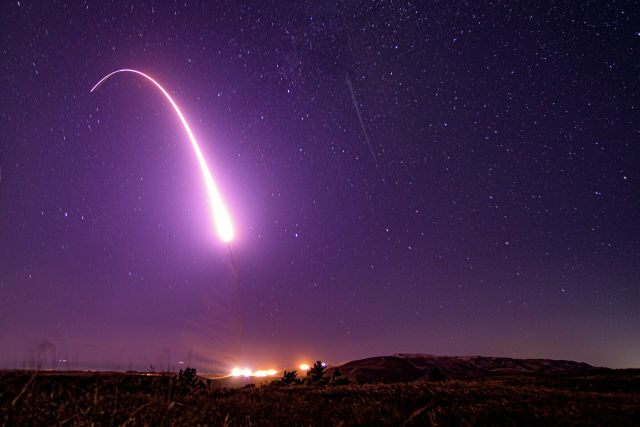Washington. April 20. INTERFAX-The United States cannot continue to deter Russia and China with the "remnants of the Cold War" - the Minuteman III intercontinental ballistic missiles (ICBMs), they are too old to extend their life, the head of the Strategic Command, Admiral Charles Richard, said on Tuesday during a hearing before the Senate Armed Services Committee.
"I need weapons systems that will eventually work and actually get to the target," he said.
The Admiral recalled that by upgrading the Minuteman III ICBMs, their expiration dates are constantly being extended. But this cannot continue indefinitely, Richard stressed.
"This is a 70s-era weapon system that I have to use against 2030-level threats," he said. According to him, many mechanisms and parts are no longer produced. "No one else knows how to make them. They are outdated, and it is not profitable for companies to make efforts to create them."
Richard has repeatedly opposed the postponement of the Ground Based Strategic Deterrent (GBSD) program to build a new ICBM to replace the obsolete Minuteman III missile arsenal.
The US Department of Defense expects that the cost of acquiring new missiles currently being developed by Northrop Grumman will amount to more than $ 95 billion.
The Joe Biden administration is expected to assess the prospects for the country's nuclear arsenal as part of a wide-ranging nuclear policy review. Richard's comments come as part of the strategic nuclear triad - intercontinental ballistic missiles-is drawing increased attention from left-wing lawmakers and arms control advocates, who argue that the United States will only be able to deter its adversaries with its strategic bombers and ballistic missile submarines.
Because of this debate, the replacement of the Minuteman III may be delayed or completely canceled, American experts say.
Minuteman III with a range of 12 thousand km is the only mine-based ICBM in the US strategic nuclear forces.
At the moment, the United States has 400 such missiles, each of which is capable of carrying up to three nuclear warheads.

